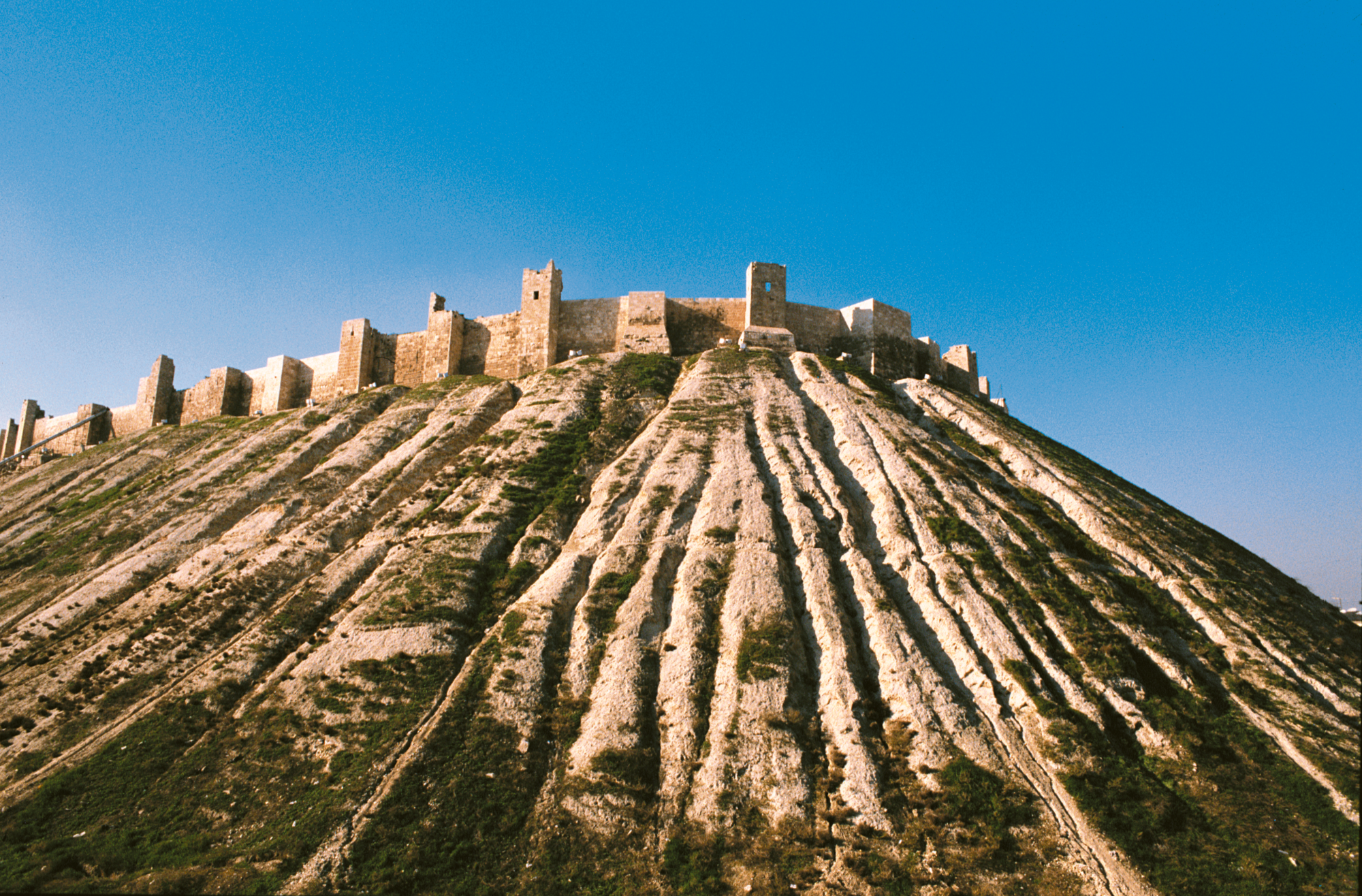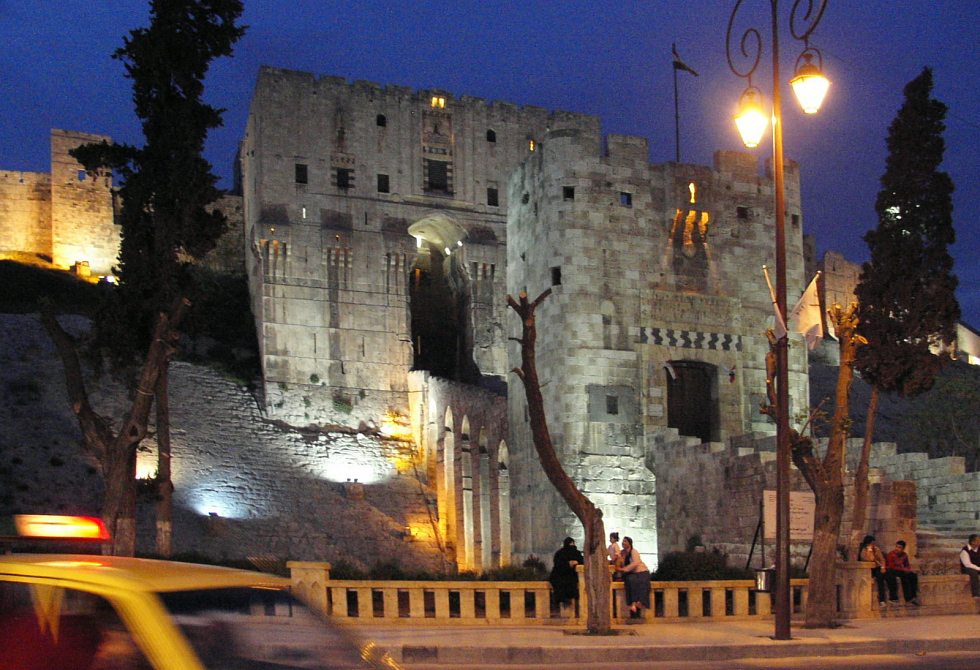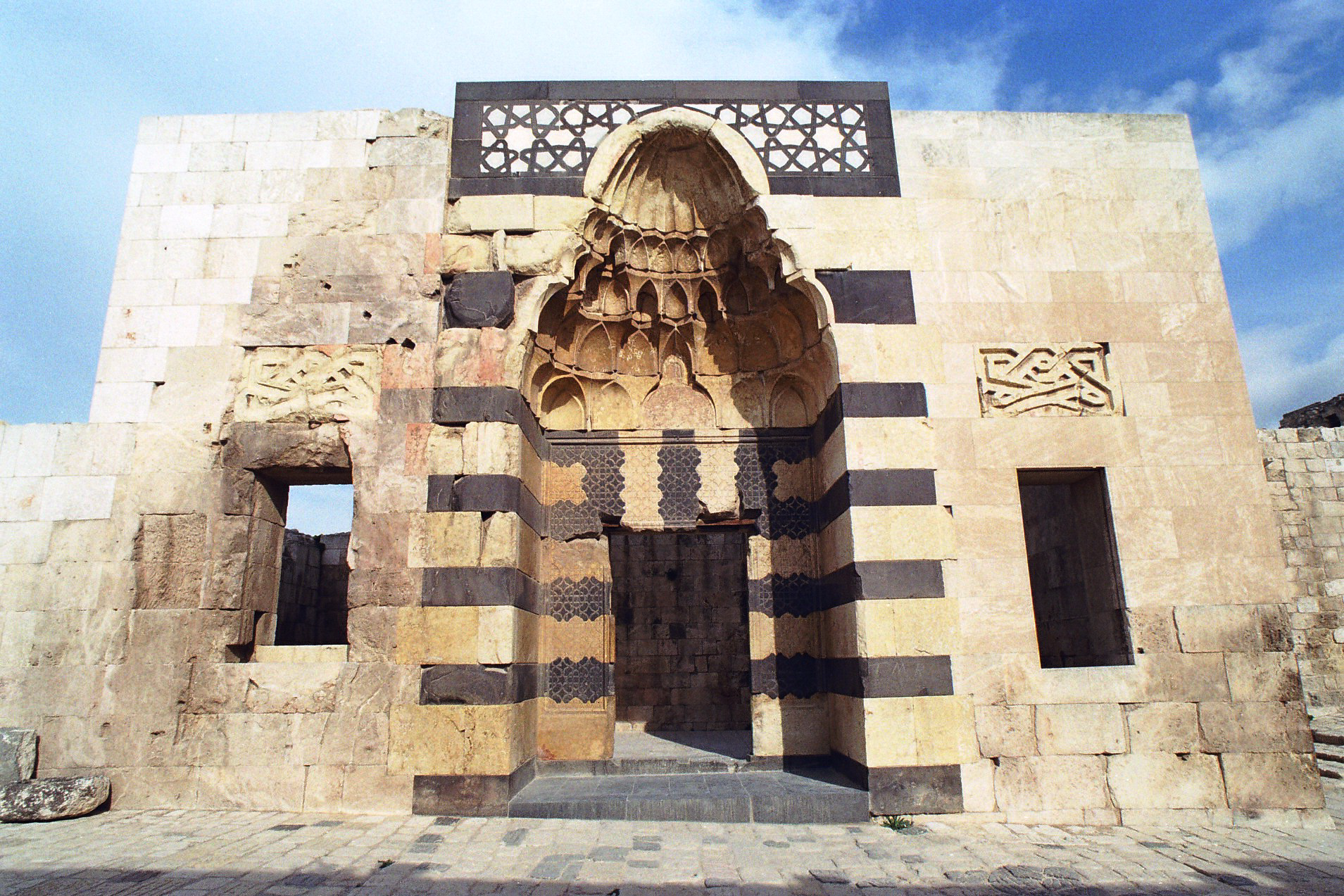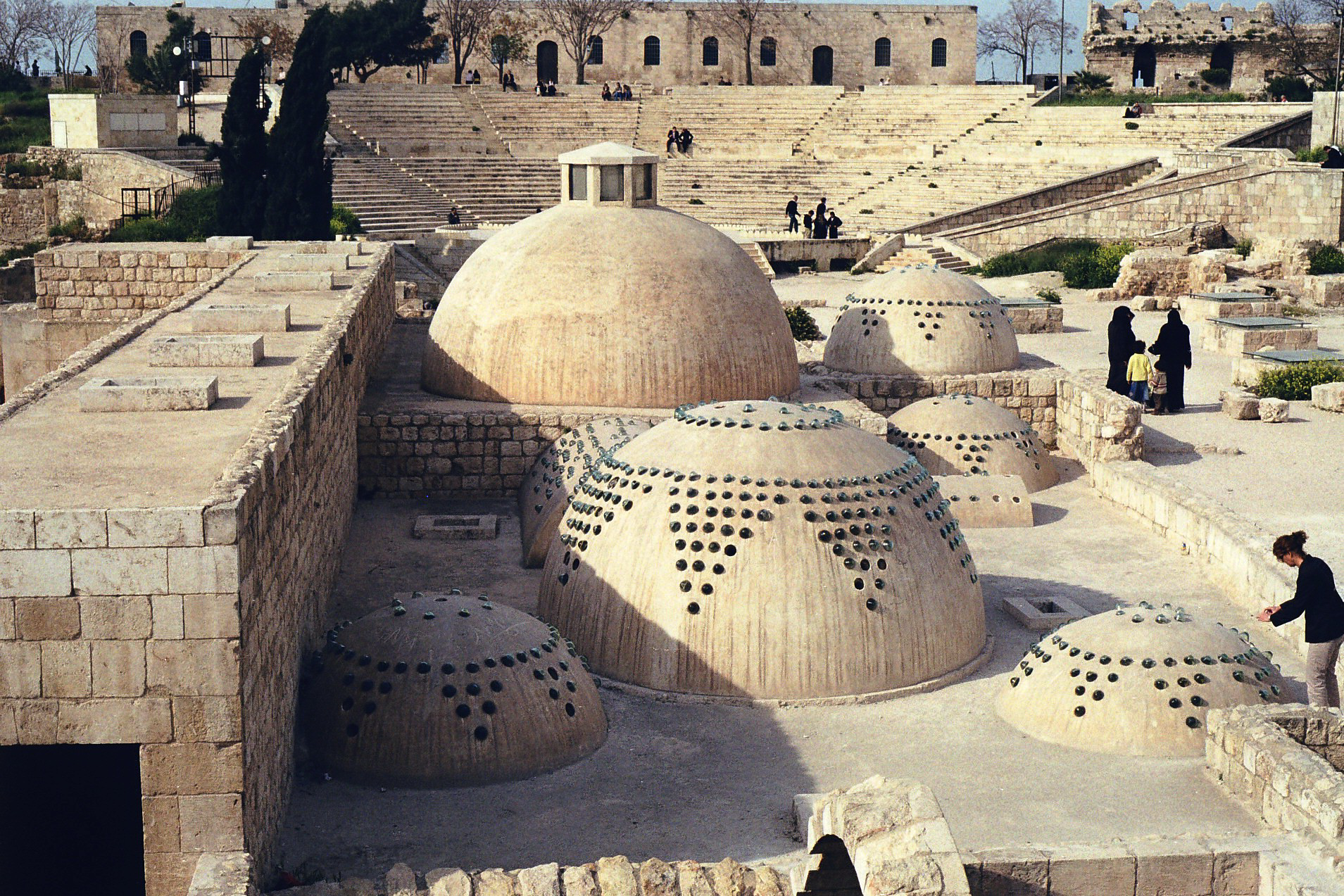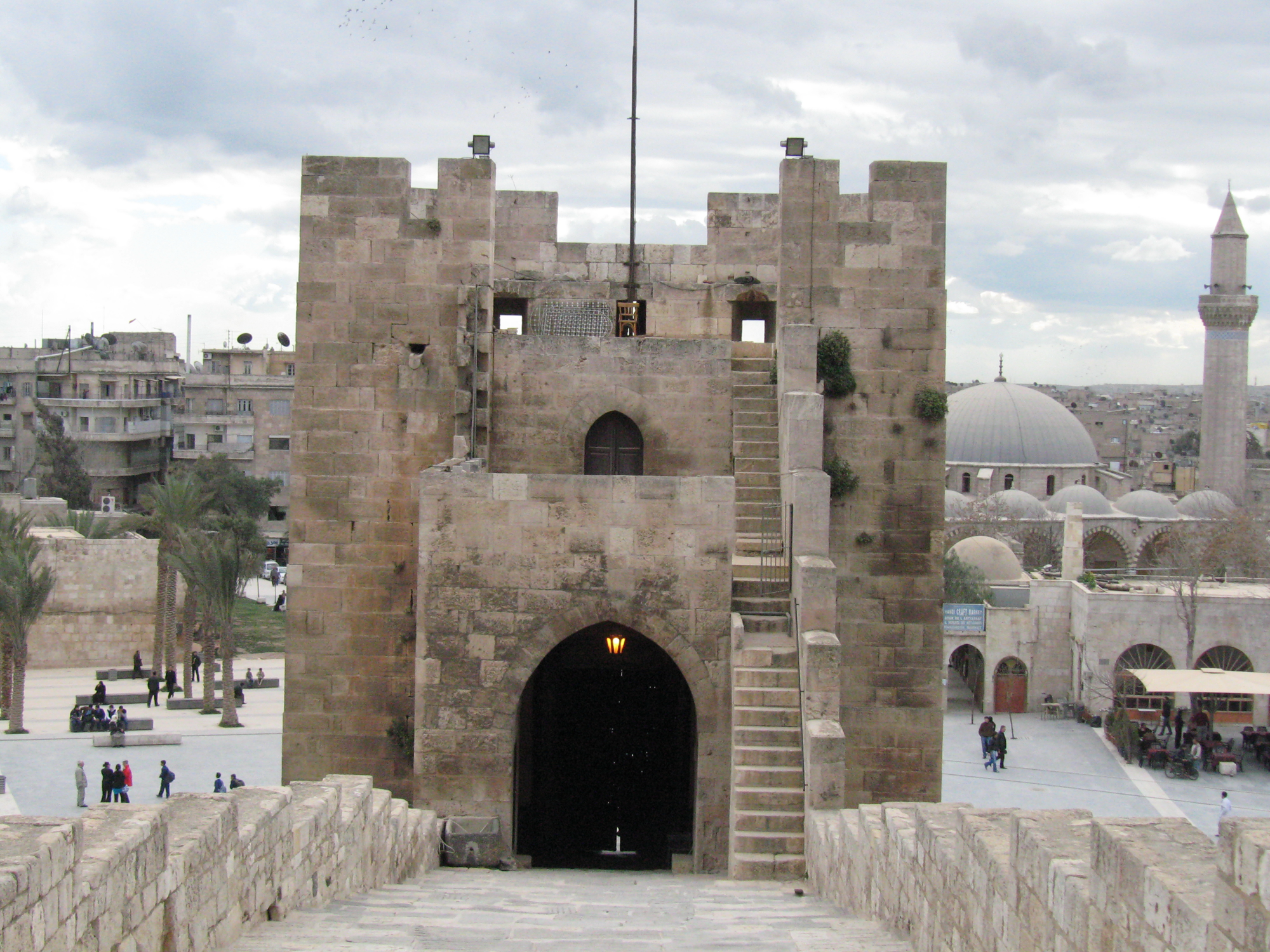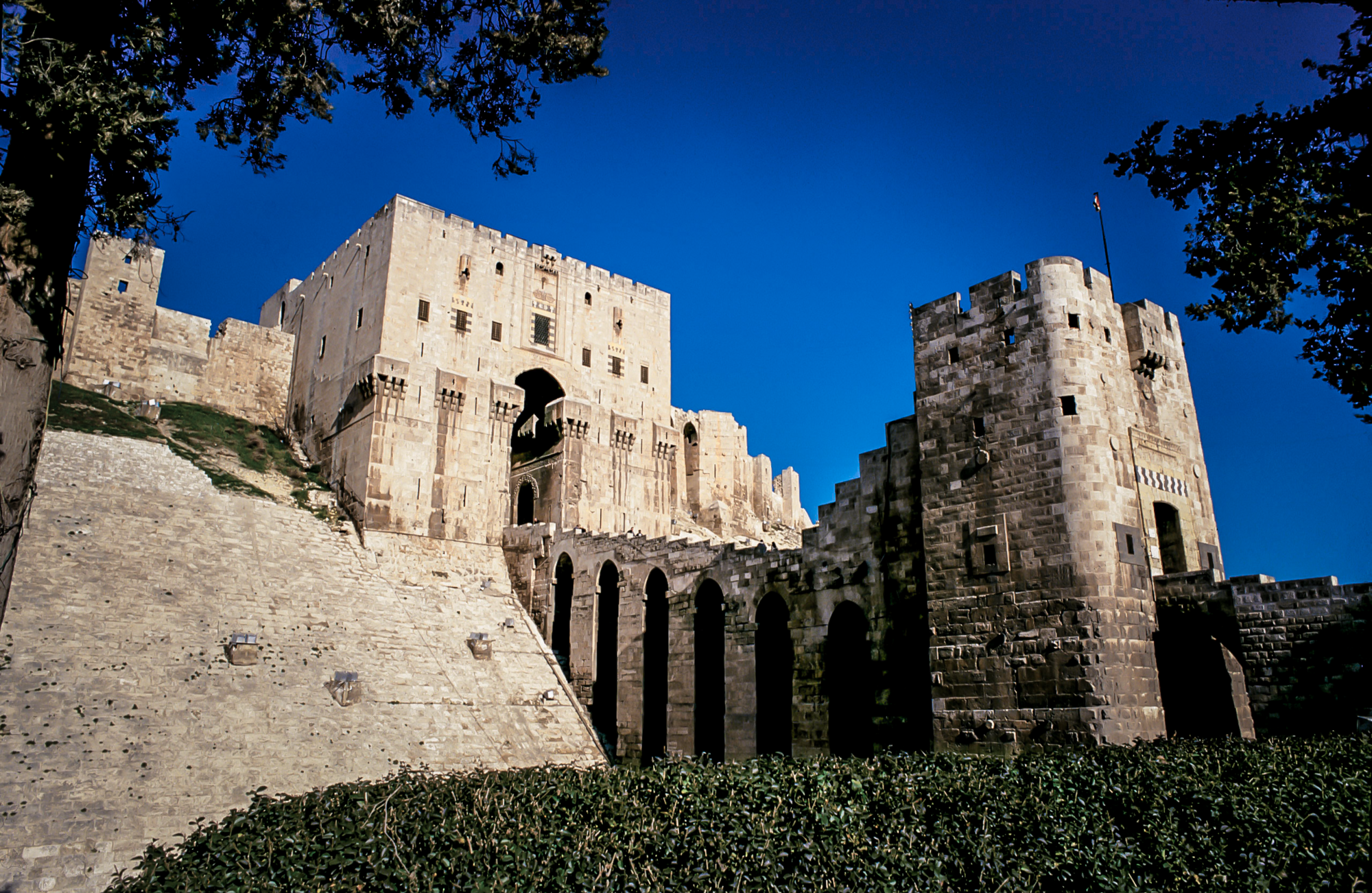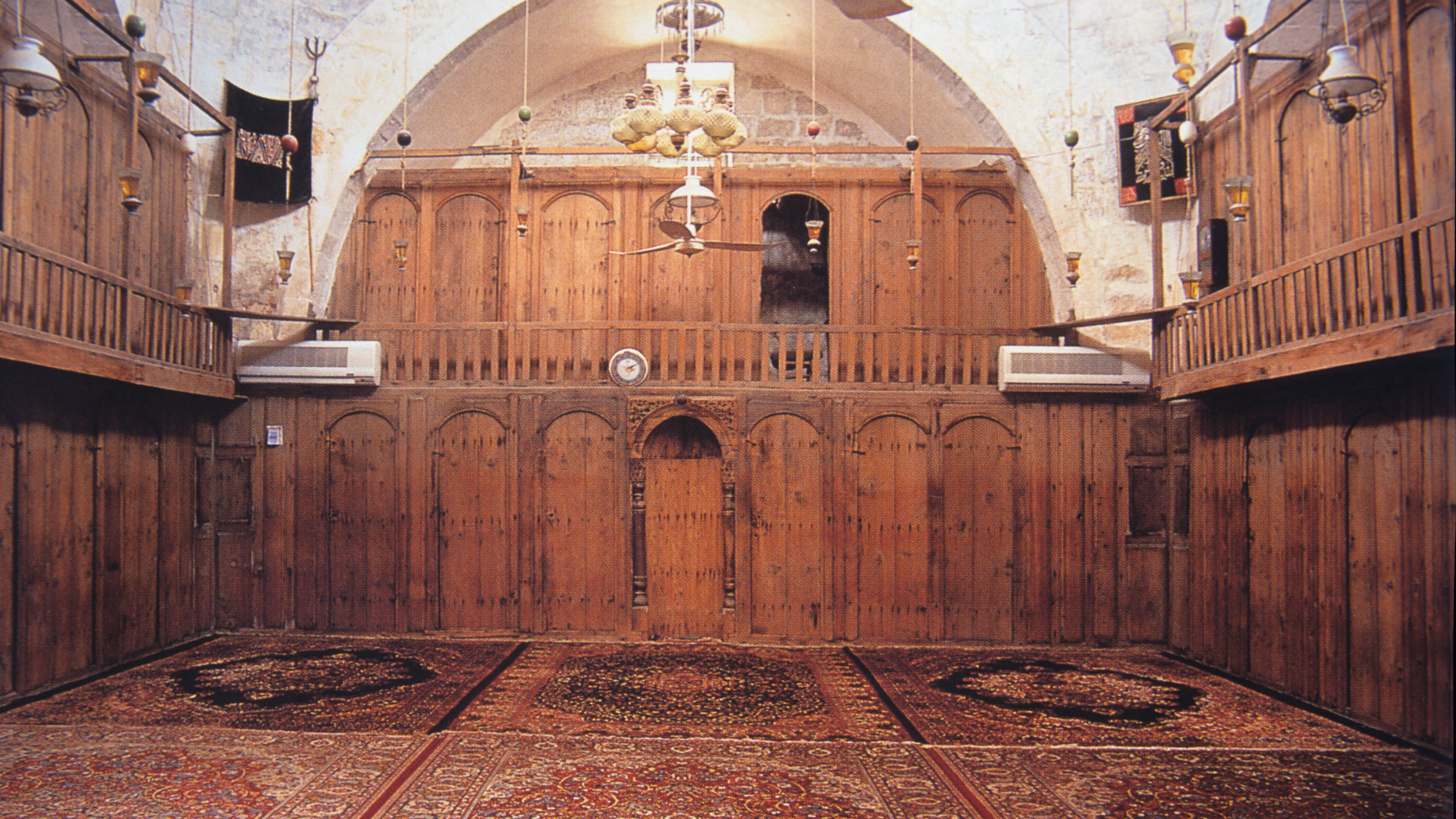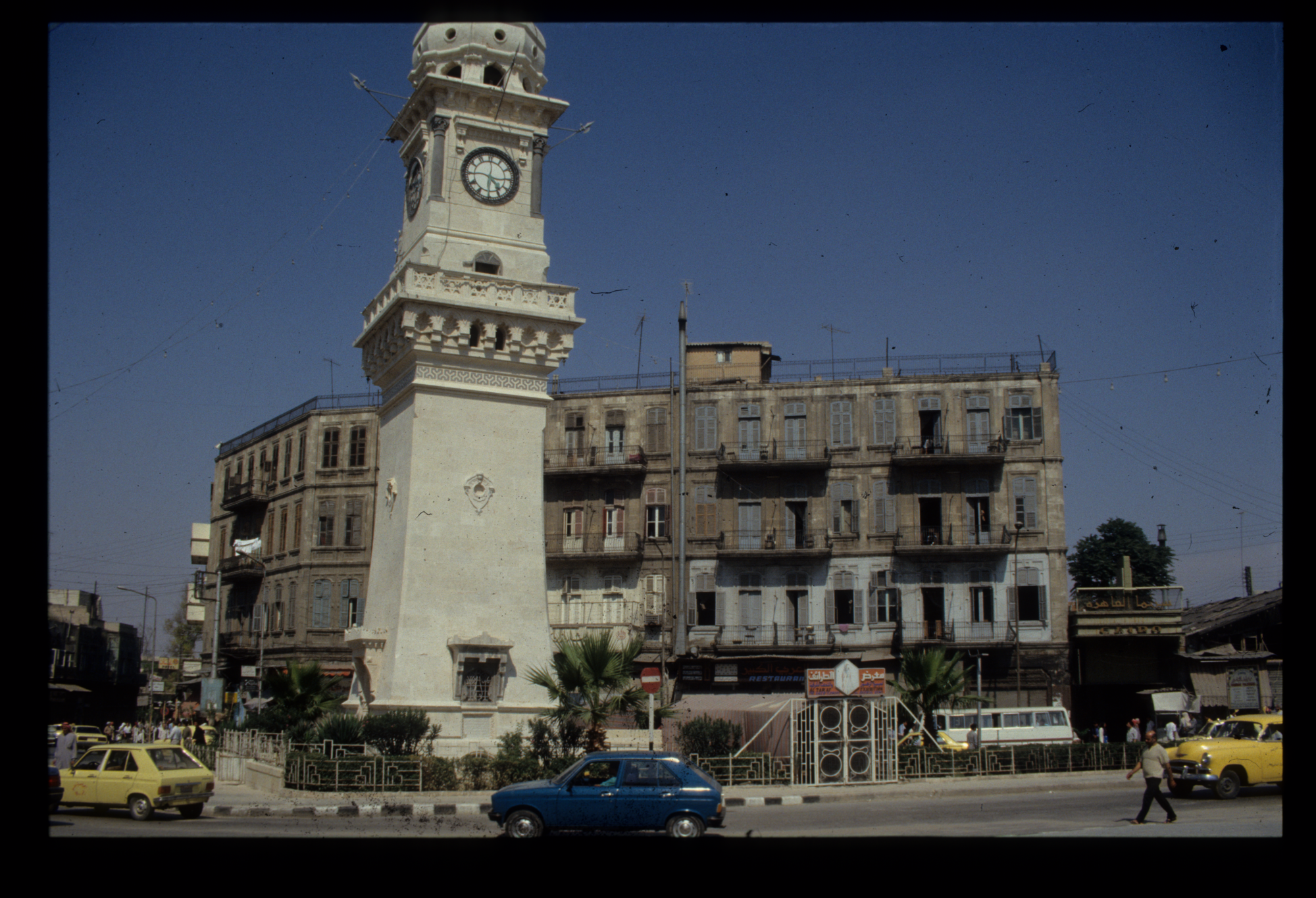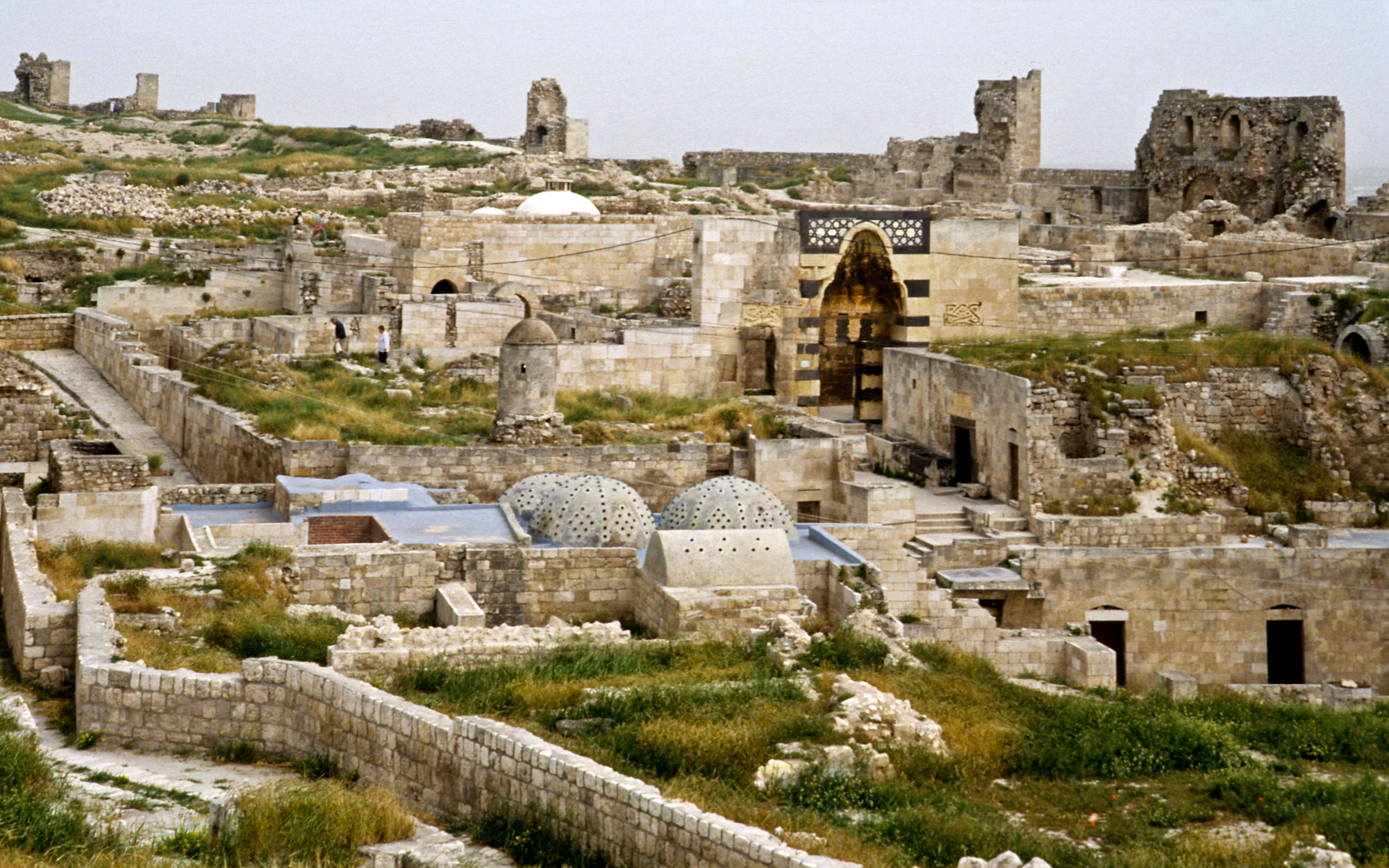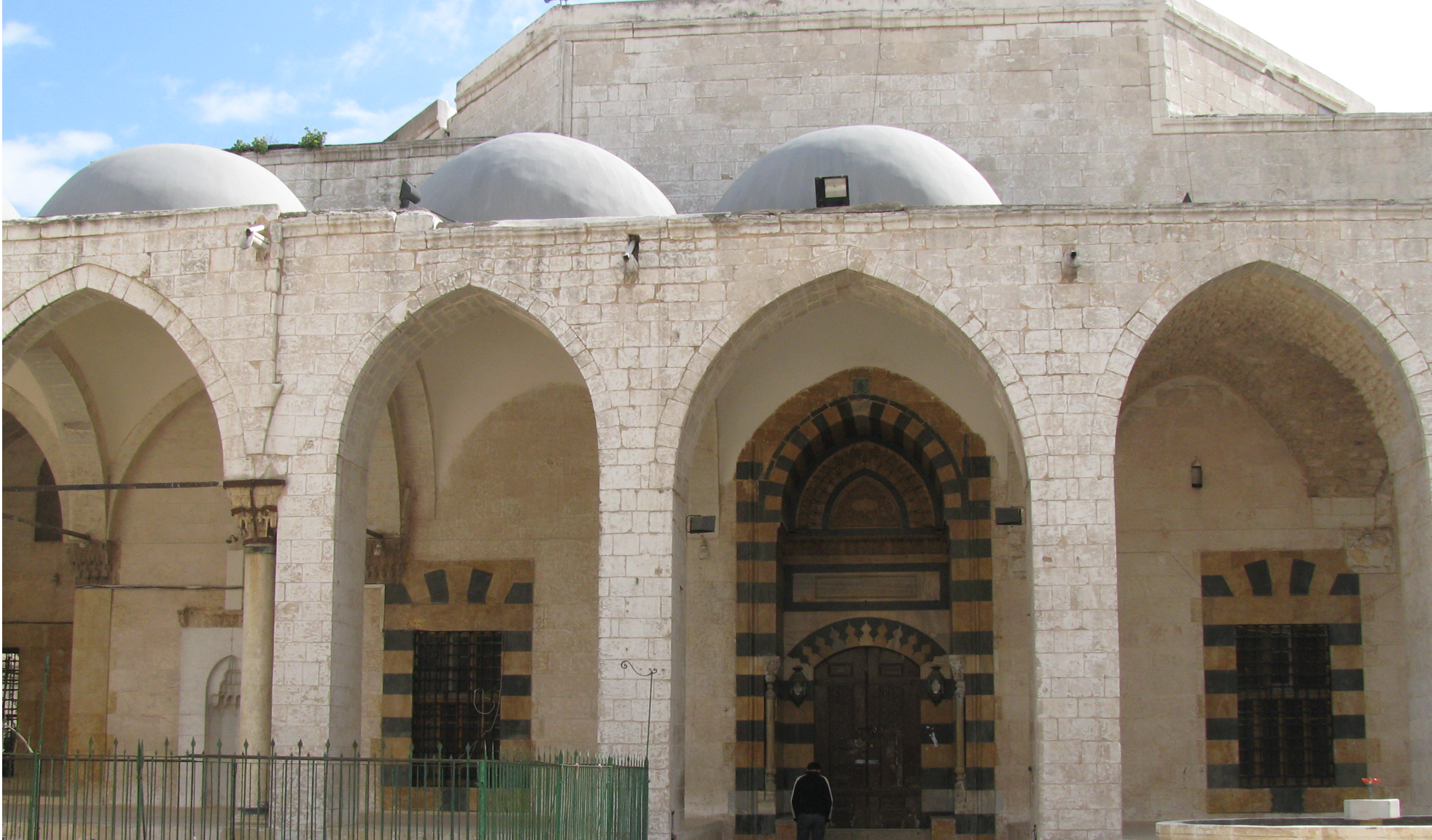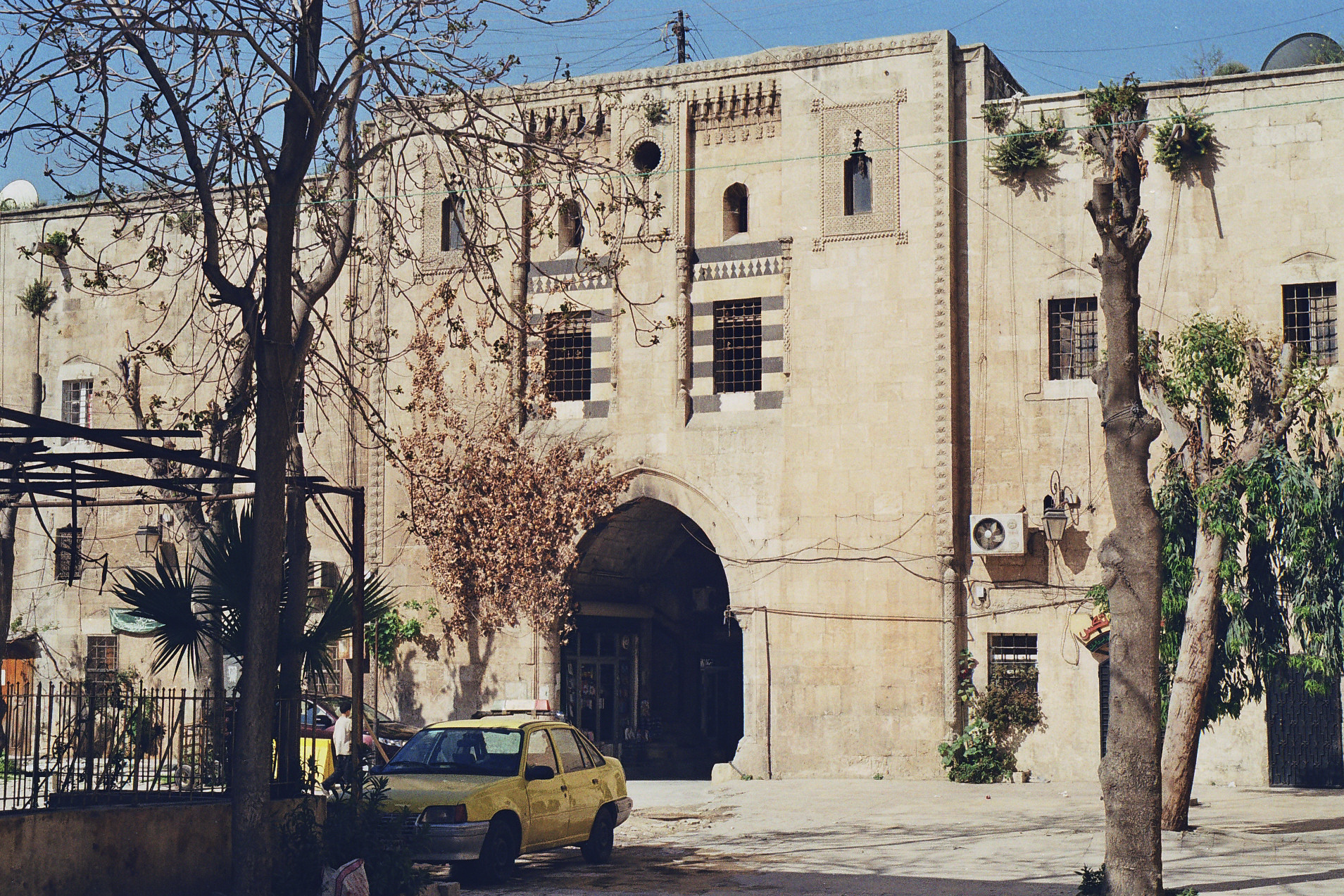About the Series
In this series we display personal stories of places (historical monuments) in Aleppo city, told by people who had a special bond with the place. The aim of this series is to highlight the intangible aspect of heritage places in Aleppo, and to communicate the inclusion of memory in reimagining and rebuilding a place through its people.
These contributions are part of the joint efforts of the Interactive Heritage Map of Syria Project along with the Aleppo Heritage Catalogue Project, which seeks to document the history and architecture of historical monuments in the city of Aleppo.
The Aleppo Citadel, a UNESCO World Heritage Site, is not just a historical monument but also a place of memories, love and identity for many Syrians. This is a statement of a young lady’s experiences and memories of the citadel, from childhood dreams to falling in love and the impact of war.
Childhood Dreams and Family History
GROWING UP IN THE AL-JAZIRA REGION OF SYRIA, NAREEN HAD ALWAYS BEEN DRAWN TO THE ALEPPO CITADEL, A MEDIEVAL FORTRESS AND ONE OF THE MOST ICONIC LANDMARKS OF THE CITY. ON FAMILY TRIPS TO ALEPPO DURING THE SUMMER HOLIDAYS, THEY WOULD ALWAYS START THE VISIT AT THE CITADEL. WHEN SHE WAS 13, THE FAMILY MOVED TO ALEPPO.
"I lived in the al-Jazira region...
...(northeast Syria) when I was young. For the summer holidays, I used to go to Aleppo in which our visit would always start around the citadel. Not knowing why exactly I felt this way, I would always say to my mom that this citadel will be my home in the future. When I was 13 years old, we finally moved to Aleppo. I would often ask my dad to take me to the citadel and we would walk around it usually in the evening."
DISCOVERING ANCESTRY AND BELONGING
DURING ONE OF THESE VISITS, A RELATIVE SHARED A PIECE OF FAMILY HISTORY THAT ADDED A NEW LAYER OF MEANING TO NAREEN'S CONNECTION TO THE CITADEL. WITH THIS NEW KNOWLEDGE, NAREEN FELT A DEEPER SENSE OF BELONGING TO THE PLACE THAT HAD ALWAYS CAPTURED HER IMAGINATION.
I BELONGED TO THIS PLACE!
"One day, one of our relatives visited us and started telling us that one of our ancestors (or our 7th great grandfather) was the one who built the walls of the citadel. He was called “the one with the red beard”. Finally, there was true evidence that I belonged to this place!"
Falling in Love at the Citadel
AS A STUDENT, NAREEN FINALLY HAD THE OPPORTUNITY TO EXPLORE THE INTERIOR OF THE CITADEL DURING SCHOOL TRIPS. SOME OF HER MOST TREASURED MEMORIES INVOLVE WALKING AROUND THE CITADEL AT NIGHT, ENJOYING THE QUIET AND THE SMELL OF RAIN. AND IT WAS DURING ONE OF HER TRIPS TO THE CITADEL THAT SHE FELL IN LOVE FOR THE FIRST TIME.
"MY FIRST VISIT INSIDE THE CITADEL ITSELF...
...was when I was in 10th grade, during a school trip. It was like a dream come true. I left my classmates and began to discover my surrounding stone by stone. I joined the group again in the cafeteria, which is unfortunately completely destroyed now.
I always visit the citadel with my friends. I feel that all my real friends are the ones I have the most memories with in the citadel. My best friend has travelled to the US because of the war, and I always remember our tour together, heading from the Umayyad Mosque towards the Citadel passing by Beroia restaurant all the way to Madrasat al-Shibani. I like walking in Aleppo at night when it is calm, but she used to get scared of the darkness and rainy weather. The smell of rain is so distinctive and the atmosphere is breezy, beautiful and completely quiet as no one is walking around the citadel. It is an absolute pleasure for me.
She would ask: "Why do you like Aleppo at night?"
I reply: "There is nothing to distract my thoughts around the citadel. The view with the gray clouds and the rain is an outstanding scene."
"MY MOST SIGNIFICANT MEMORY THERE IS FALLING IN LOVE...
...in the citadel. At work, I met someone who quickly realized how much I liked Aleppo and its citadel and decided to disclose his love to me in a café overlooking the citadel. He knew what a positive energy this place brings me. I remember it was a beautiful night, clear sky, bright stars, wrapped by a cool breeze of early spring. The atmosphere was great and the place was filled with joyful people enjoying the nice weather with music. Every time we used to fight or disagree on something we would always come to the citadel to discuss and take decisions. Our love relationship did not last but it was very special.
This citadel is my home. It is part of my identity as I have the most beautiful memories. A part of my personality and character has developed around it."
War and loss
Unfortunately, the armed conflict in Syria...
...HAS HAD A DEVASTATING IMPACT ON THE ALEPPO CITADEL, AS IT HAS ON MANY HISTORICAL SITES AND COMMUNITIES ACROSS THE COUNTRY. NAREEN WITNESSED FIRSTHAND THE DESTRUCTION AND LOSS OF LIFE THAT THE WAR BROUGHT TO ALEPPO AND THE CITADEL. MANY BUILDINGS WERE DESTROYED, INCLUDING PARTS OF THE CITADEL, AND HER OWN HOME WAS DAMAGED. THE LOSS OF LIFE, CULTURAL HERITAGE, AND COMMUNITY TORE NAREEN’S HEART APART.
"I have visited the citadel three times after the end of the armed clashes. In the first visit, I was in a state of shock. I tried to understand what happened. It was very difficult for me especially since I have certain memories in it. I expected a certain smell that I was familiar with but those smells have disappeared. There was a bad energy around it with a sense of fatigue, soreness and pain, for the people and the place itself. I had a very difficult intense feeling there that I cannot describe. I used to get very happy to stand in front of the ancient stones of the citadel wanting to embrace them if I could, but now this very thing hurts me."
"ON MY THIRD VISIT, I BEGAN TO UNDERSTAND THAT PART OF MY MEMORY HAD BEEN LOST.
There used to be a big tree next to the citadel’s cafeteria, and when my dream to visit the place for the first time came true I wanted to commemorate the date by carving my friend’s initials and mine lightly and in small on the tree. But during the war, we lost the cafeteria as well as the tree, and up till this moment I search to find their place in vain."
THE CITADEL TODAY: PRESERVING MEMORIES AND LOVE
DESPITE THE DEVASTATION...
...NAREEN REMAINS COMMITTED TO PRESERVING MEMORIES AND LOVE FOR THE CITADEL AND HER HOMETOWN. SHE TRIES TO BECOME AS INVOLVED AS POSSIBLE IN INITIATIVES TO RESTORE THE CITADEL, TO KEEP THE MEMORIES AND LOVE OF THE PAST ALIVE FOR FUTURE GENERATIONS. THROUGH HER INVOLVEMENT, SHE HAS FOUND HOPE AND HEALING, AS SHE WORKS TO HONOR HER ANCESTORS AND THE HERITAGE OF ALEPPO. IN DOING SO, SHE HOPES TO BUILD A FUTURE WHERE MEMORIES AND LOVE CAN THRIVE, EVEN IN THE MIDST OF CONFLICT AND LOSS.
"I am willing to do anything that would be of help to the citadel. I tried applying to an excavation work in the citadel, announced by the Directorate of Antiquities, as I had some background experience in the field. I was not lucky enough to participate though. It could be that those who were chosen to do the job are more professionally experienced, but still, I try in my own way to preserve and maintain the citadel as much as possible, especially by keeping it clean. It annoys me very much when I see people who are tampering with it and they are not interested in keeping the place clean. So I ask strangers to stop throwing trash on the ground saying: "Isn’t it enough what have already happened to the citadel?!"
"MY WISH IS TO RAISE COMMON AWARENESS ABOUT OUR HERITAGE.
It is rather an entire human global heritage. Shakespeare has written about the fame of Aleppo being a world trade center on the Silk Road. Aleppo encompasses the whole world and not just us Syrians. I take pictures of all angles of the citadel though I am not a professional photographer, but I keep sending my friends abroad photos of the citadel. They all have this nostalgia because this citadel is part of our identity and ask for more pictures.
We will lose the value of our citadel if we do not take care of it. We could start by teaching the people to consider the citadel as their home and so keep it clean as they would in their own houses. I hope there will be complete guided strategies for that, to realize that we are walking on the footsteps of former civilizations that continue to form what we are today."
Discover More Memories from Aleppo
The Tradition of Az-Zawiya Al-Hillaliyya
This is a memory from Aleppo about a woman’s personal experience of Az-Zawiya al-Hillaliyya, a Sufi ritual prayer place in Aleppo with 800 years of history.
Restoring Bab Al-Faraj Clock
This is a memory from Aleppo about a young boy's fascination with the broken Bab Al-Faraj clock and his dreams of fixing it. This is part of a series about memories from Aleppo.
The Aleppo Citadel
The Aleppo Citadel is not just a historical monument but also a place of memories, love and identity for many Syrians. This is a statement of a young lady’s experiences and memories of the citadel, from childhood dreams to falling in love and the impact of war.
The al-Bahramiyya Mosque
A deeply personal account of one man's relationship with a beloved mosque that has been ravaged by war. This memory is a touching tribute to a place that holds deep meaning for the narrator, Sami Bahrami, and the Aleppian community.
A Tale of Khan al-Wazir
This memory is a personal journey through Khan al-Wazir, Aleppo, of a textile merchant who grew up and worked in the historic trading center. It explores Paul’s memories and experiences of the Khan, and their hopes for its future restoration.
